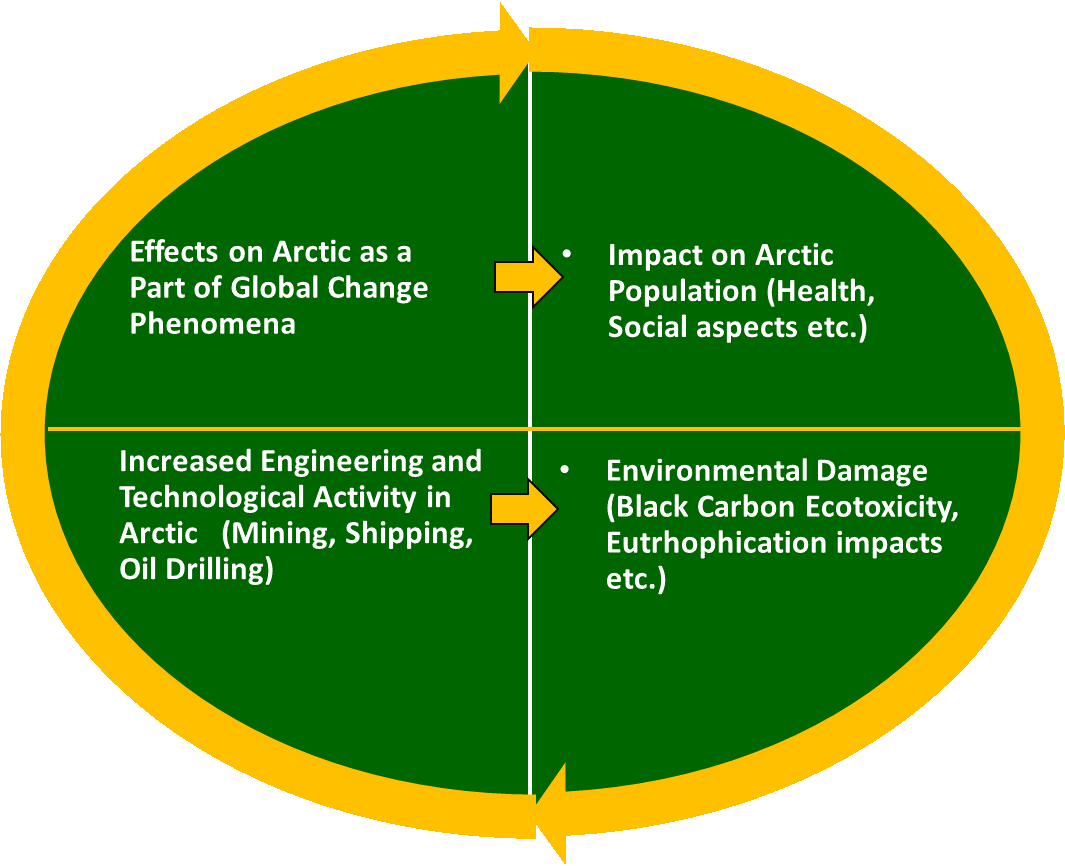Understanding Arctic Sustainability Challenges from Systems Perspective
A special issue of Sustainability (ISSN 2071-1050).
Deadline for manuscript submissions: closed (30 November 2021) | Viewed by 4027
Special Issue Editor
Special Issue Information
Dear Colleague,
The Arctic is home to numerous unique and diverse species of flora and fauna. The wilderness and beauty of this region have been preserved for centuries together. Until now, the permanent ice cover served as a protection shield for delicate ecosystems of the Arctic and restricted anthropogenic interventions. However, in recent years, Arctic ice has started melting, which is one of the many undesirable consequences of global warming-induced climate change impact. Retreating ice requires significant revenues for the Arctic shipping industry and increased urbanization and the region will be seen by the rest of the world as a major supplier of natural resources (oil, metals, and minerals). In the future, the Arctic will make an immense contribution to the world economy. But on the flip side, climate change-induced defrosting of ice also presents new challenges in the Arctic. Sustainability challenges in the Arctic can be divided into two categories as shown in Figure 1.

Figure 1 Bird’s Eye View of Arctic Sustainability Challenges
The first category includes the effects on the Arctic as a part of global change phenomena: how the changes occurring in the rest of the world with respect to rapid urbanization, technology development, resource consumption, etc., impact Arctic communities in terms of health, social, and cultural aspects. The second category of effects stems from ramping up engineering and technological activities (trans-Arctic shipping, oil exploration, and mining) that will damage the Arctic environment due to deposition of black carbon, increasing ecotoxicity and eutrophication impacts. Therefore, future developments in the Arctic must be understood from a holistic perspective where an in-depth understanding of the environmental and engineering challenges related to the Arctic is required.
This Special Issue is inviting contributions related to Arctic sustainability. We are looking for studies addressing Arctic sustainability challenges from a systems-level perspective covering the following topics:
- Life cycle assessment (LCA) and cost-benefit analysis (CBA) studies quantifying environmental and economic impacts of shipping (with a focus on the use of alternative fuels (algal/biofuels)) in Arctic and mining activities
- Ecosystem services studies of Arctic interest
- Addressing data gaps with respect to lack of life cycle inventory (LCI) for performing LCAs
- Reviews summarizing in-depth understandings of Arctic sustainability challenges
- Understanding the impact of urbanization trends in the world on the Arctic environment (attributed to increased demand for fuel, metals, minerals, etc.)
- Social life cycle assessment studies related to Arctic communities (e.g., indigenous communities like the Sami people)
- Studies addressing sustainable policies and geopolitical dimensions related to the Arctic
Dr. Venkata Krishna Kumar Upadhyayula
Guest Editor
Manuscript Submission Information
Manuscripts should be submitted online at www.mdpi.com by registering and logging in to this website. Once you are registered, click here to go to the submission form. Manuscripts can be submitted until the deadline. All submissions that pass pre-check are peer-reviewed. Accepted papers will be published continuously in the journal (as soon as accepted) and will be listed together on the special issue website. Research articles, review articles as well as short communications are invited. For planned papers, a title and short abstract (about 100 words) can be sent to the Editorial Office for announcement on this website.
Submitted manuscripts should not have been published previously, nor be under consideration for publication elsewhere (except conference proceedings papers). All manuscripts are thoroughly refereed through a single-blind peer-review process. A guide for authors and other relevant information for submission of manuscripts is available on the Instructions for Authors page. Sustainability is an international peer-reviewed open access semimonthly journal published by MDPI.
Please visit the Instructions for Authors page before submitting a manuscript. The Article Processing Charge (APC) for publication in this open access journal is 2400 CHF (Swiss Francs). Submitted papers should be well formatted and use good English. Authors may use MDPI's English editing service prior to publication or during author revisions.
Keywords
- life cycle assessment
- cost-benefit analysis
- ecosystem services studies of Arctic
- studies related to Arctic communities
- Arctic sustainability challenges
- the Arctic environment





